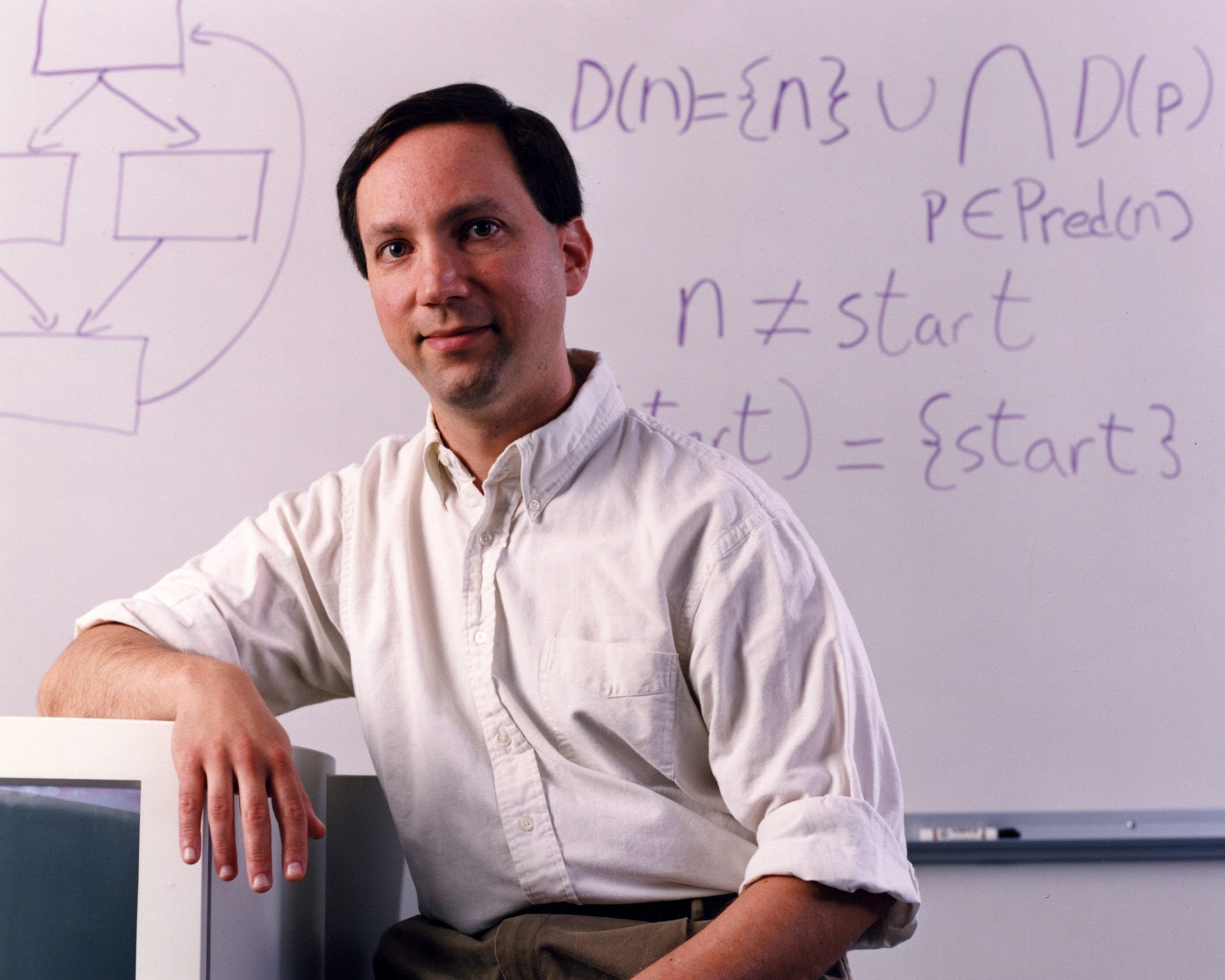One of the greatest pleasures I have had as a Carlson Award recipient is in reading the letters written on behalf of this year’s award nominees. It is truly inspiring to learn first-hand about the impact that the dedication and innovation of my colleagues has had on students. Letters written on behalf of this year’s Carlson Award recipient repeatedly stress several characteristics of this professor’s teaching that explain why it is outstanding. They also reveal a deep and fundamental trust that these students have in their teacher.
This year’s award recipient invites and inspires students to share his appreciation for his field of study and its relationship to current events in the world, as evidenced by the following comments from students: “In every class I’ve taken from him, he opens with the question, ‘Are there things you came wanting to talk about today?”‘. . .’The questions [we can ask] are not restricted to the reading, but involve any current topic in [the field] and occasionally a question involving some current event.”. . .”He tailors his classes to the needs and interests of his students.”…”His attention to detail is inspiring. If anyone asks a question in class that he is not positive on the answer (which is rare), ten minutes after class we will all receive an e-mail containing not only the answer to the question, but the history, background, and where to find more information.”
This year’s award recipient is dedicated to helping students learn for themselves, as evident from the following comments: “He realizes the difficulty of the material he presents. Thus, the amount of time [he] makes himself available to his students goes far above that of any other professor I have had.”…”One time I visited him five times in one day on the same problem. Without a hint of exasperation, he explained it with a different method each time-a drawing, an analogy, several examples, more analogies, more drawings-until we both felt I understood the problem.”
Finally, the students’ overwhelming trust in this teacher is apparent in every letter. Here are a few excerpts: “He is a sympathetic genius committed to helping you succeed.” …”His number-one priority is his students’ education.”. . .”No question goes unanswered.”…”It is quite rare to find an aspect of his field that he cannot speak intelligently about.” His face lights up with excitement just as much as mine when I have a breakthrough and suddenly understand how to solve the problem. It is obvious that he finds teaching highly rewarding.”
I cannot think of more fitting words to describe this year’s Carlson Award recipient than “sympathetic genius,” for who best fits this sobriquet but Max Hailperin, associate professor of mathematics and computer science. As evidenced daily on this campus, Max is brilliant in many ways. He applies his intellect not only to addressing a wide range of problems in his field, but also to developing new approaches for teaching computer science. He has co-written, with Barbara Kaiser and Karl Knight, Concrete Abstractions, an innovative textbook that provides introductory computer science students with hands-on experience with programming, proving, analyzing, and experimenting. Furthermore, he has been a co-principal investigator for obtaining NSF funding to develop labs that have “radically reshaped both the content and the delivery format of the two-semester introductory computer science sequence.”
Max grew up in academe; as the child of two faculty members, he was early exposed to the demands and rewards of academic life. He graduated from M.I.T. with a degree in computer science and engineering and then completed his Ph.D. in computer science at Stanford University. He was awarded a Fulbright Fellowship, which he declined, and a National Science Foundation Graduate Fellowship. Max has published articles concerning his research in professional journals, and has also published numerous reviews in the journal ACM Computing Reviews. He shares authorship of a patent tied ”Logic Program Parallel Processing System.” He is a member of various professional organizations, including the Association for Computing Machinery, the Institute of Electrical and Electronics Engineers Computer Society, and the Liberal Arts Computer Science Consortium.
At Gustavus, Max has taught nearly every course in the computer science curriculum. He has also taught a First Term Seminar course titled “information Technology, Law, and Society” and a January Term course titled “Law on the Electronic Frontier,” which reveal his interests in legal issues related to information technology. Max engages his students in a variety of computer science projects, whether through his January term ”Robotics” course, his “Object Oriented Software Development’ ‘course, or independent research projects on a wide range of topics, from robotics, to object-code compilation, to tools for distributed information resource providers. Max has shared his pedagogical innovations and experiences by publishing them in electronic and paper form, and by leading workshops focused on teaching computer science and integrating computer science in a liberal arts curriculum.
All of these accomplishments result from Max’s versatility and his genuine commitment to liberal arts education. Max, you are truly deserving of this honor. Congratulations on receiving the 2002 Edgar M. Carlson Award for Distinguished Teaching!
Presented by Dr. Gretchen Hofmeister
Associate Professor of Chemistry
2001 Recipient of the Edgar M. Carlson Award

Leave a Reply
You must be logged in to post a comment.